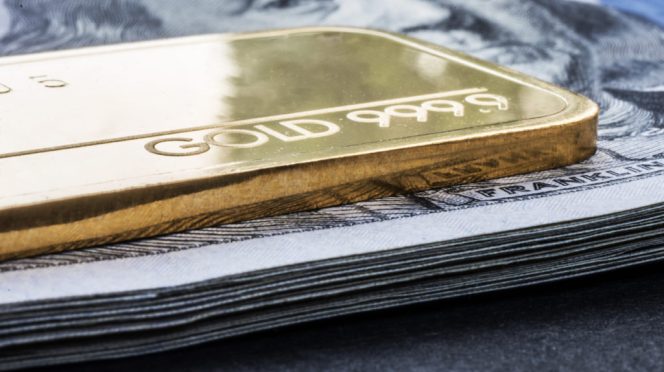Dollar-strapped Bolivia is relying on increasingly sophisticated operations to raise hard currency that it can use to pay its foreign debt.
In recent months, the Bolivian central bank has raised $589 million against the delivery in a year’s time of 5.4 tons of gold, it said in a report published this month.
The futures contracts are just the latest gold operations launched by the central bank, which has been buying bullion in local currency from small domestic producers and flipping it for badly needed dollars. Bloomberg reported earlier this year how the operations allowed Bolivia to raise more than $3 billion, despite potential negative environmental impacts in places like the Amazon rainforest where much of the gold is sourced from.
“We understand that the central bank has taken all the legal provisions to carry out these forward sales operations,” Finance Minister Marcelo Montenegro said in a press conference on Wednesday. Bolivia’s reserves are low but rose to $2.9 billion, according to the central bank.
The newest operations have helped Bolivia avoid default, the bank said, but also come with a big caveat. Delivering the gold to settle the contract next year will be the responsibility of a new government.
Bolivia will hold a runoff vote for the presidency next month between a centrist and a conservative candidate, which will put an end to almost two decades of socialist rule under the MAS party.
“The new government should take provisions,” Bolivian analyst Luis Fernando Romero said. “The details of the operations should be transparent, because they are not clear.”
The central bank said in its report that between May and August it signed forward contracts for 4.32 tons and 1.08 tons of gold, generating inflows of $469m and $120m, respectively. “It is important to highlight that in these operations the central bank maintains ownership of the agreed gold”, the report said.
In August, the board also approved a “gold reserve accumulation plan” to meet the future obligations, without explaining further.
Earlier in the year, the bank sold three tons of gold through a similar hedged forward deal, though it didn’t disclose the amount of cash it raised. Romero estimates the three operations combined, covering 8.4 tons of gold, have yielded about $916 million.
Asked about details of the transactions, the central bank said that all relevant information was included in its reports.
Under Bolivian law, the central bank must maintain at least 22 tons of gold within its reserves. But the recent operations have raised eyebrows that using gold as collateral would amount to a workaround.
Right-wing candidate Jorge Tuto Quiroga has questioned the legality of the operations, threatening central bank employees with jail time in a future administration. “It is illegal to pawn gold below the 22 tons” threshold, he said.
The central bank has defended the measures. “Not carrying out these financial operations, as the candidate suggests, would have led to serious risks for the country by not meeting internal and external state obligations, causing situations such as a default,” it said.
(By Sergio Mendoza)













